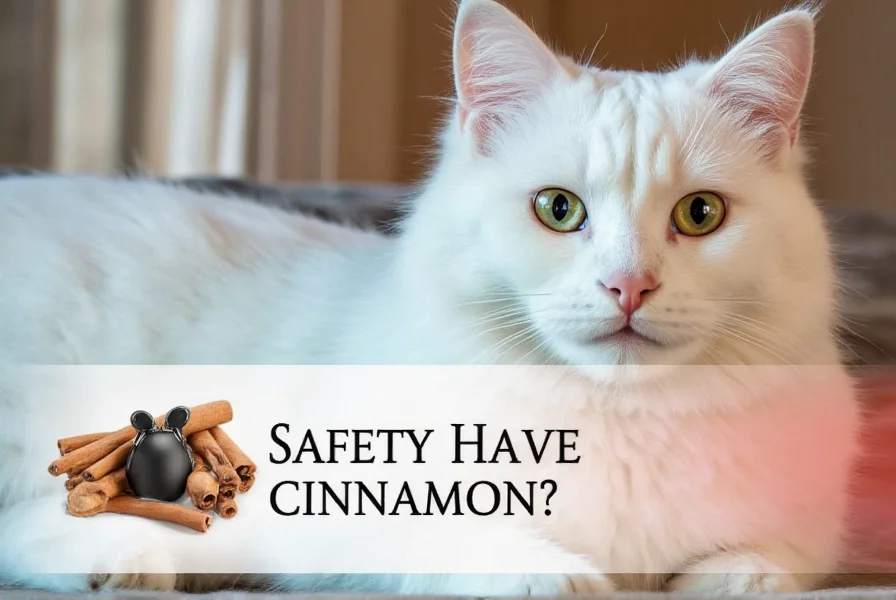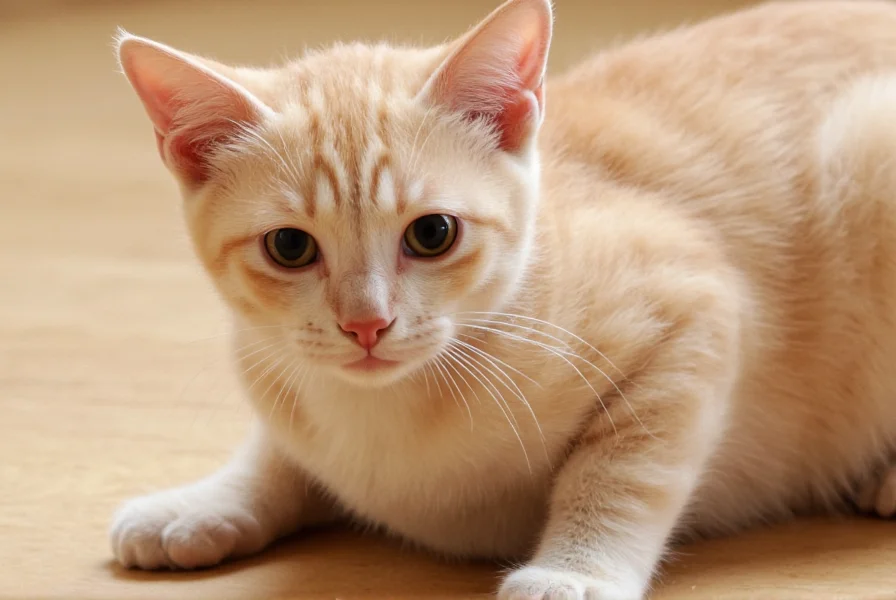No, cats should not have cinnamon. While small amounts of cinnamon powder are not immediately toxic, this spice can cause significant health issues in cats including mouth irritation, digestive upset, and liver damage. Cinnamon essential oil is particularly dangerous and can be life-threatening even in small quantities. If your cat has consumed cinnamon, especially in concentrated form, contact your veterinarian immediately.
As a pet owner, understanding which human foods are safe for your feline companion is crucial for their wellbeing. Cinnamon, a common kitchen spice, raises important safety concerns when it comes to cats. Unlike humans who can enjoy cinnamon's benefits, cats lack the necessary enzymes to properly metabolize compounds found in this spice, making it potentially harmful.
Why Cinnamon Poses Risks to Cats
Cats have a significantly different metabolism than humans. The compound coumarin, found naturally in cinnamon, particularly in Cassia cinnamon (the most common variety), can cause liver damage in cats. Coumarin toxicity affects the liver's ability to function properly, which is especially concerning since cats already have limited capacity to process certain compounds.
Cinnamon also contains cinnamaldehyde, which causes irritation to mucous membranes. When cats encounter cinnamon powder, it can lead to:
- Burning sensation in the mouth and throat
- Excessive drooling
- Nasal and eye irritation
- Difficulty breathing if inhaled
- Upset stomach and vomiting
| Cinnamon Form | Risk Level for Cats | Potential Symptoms |
|---|---|---|
| Cinnamon powder (small amounts) | Moderate | Mouth irritation, drooling, mild digestive upset |
| Cinnamon powder (larger amounts) | High | Vomiting, diarrhea, low blood sugar, liver damage |
| Cinnamon essential oil | Severe | Respiratory distress, liver failure, neurological symptoms |
| Cinnamon sticks | Low-Moderate | Choking hazard, mild irritation if chewed |
Cinnamon Essential Oil: A Serious Threat
Cinnamon essential oil represents the greatest danger to cats. Essential oils are highly concentrated forms of plant compounds, and cats lack certain liver enzymes (glucuronyl transferase) needed to metabolize these substances safely. When exposed to cinnamon oil, cats can experience:
- Severe respiratory distress
- Chemical burns in the mouth
- Liver failure
- Neurological symptoms including tremors
- Low body temperature
Never use cinnamon essential oil in diffusers around cats, and keep all essential oils securely stored away from curious felines. If your cat has been exposed to cinnamon oil, seek veterinary care immediately—this constitutes a medical emergency.

What to Do If Your Cat Consumed Cinnamon
If you discover your cat has eaten cinnamon, follow these steps:
- Remain calm but act quickly
- Identify what form of cinnamon was consumed (powder, oil, stick)
- Estimate the amount ingested
- Contact your veterinarian or an animal poison control center immediately
- Do not induce vomiting unless specifically instructed by a professional
Your veterinarian may recommend observation at home for small amounts of powder, or immediate examination for larger quantities or essential oil exposure. Treatment might include fluid therapy, medications to protect the liver, or other supportive care depending on symptoms.
Safe Alternatives for Cat Owners
While cinnamon offers no health benefits for cats and poses risks, some pet owners seek natural solutions for various concerns. If you're considering cinnamon for purposes like flea prevention or as a flavoring, safer alternatives exist:
- For flea prevention: Consult your vet about approved topical treatments
- For digestive issues: Specialized veterinary diets rather than home remedies
- For environmental enrichment: Cat-safe herbs like catnip or valerian root
Remember that cats have specific nutritional requirements best met through balanced commercial cat foods or veterinarian-approved diets. Introducing human foods or spices often does more harm than good.
When to Contact Your Veterinarian
Seek immediate veterinary attention if your cat shows any of these symptoms after potential cinnamon exposure:
- Excessive drooling or pawing at the mouth
- Vomiting or diarrhea
- Difficulty breathing
- Lethargy or weakness
- Tremors or seizures
- Low body temperature
Preventing Cinnamon Exposure
Prevention remains the best approach to keeping your cat safe from cinnamon hazards:
- Store spices securely in closed cabinets
- Avoid using cinnamon-scented candles or air fresheners
- Never apply essential oils to your cat or use diffusers in enclosed spaces with cats
- Be cautious with baked goods containing cinnamon
- Supervise your cat in kitchen areas where spices are used
Creating a cat-safe environment means being aware of common household items that might seem harmless but pose risks to your feline companion. When in doubt about any food or substance, consult your veterinarian before allowing your cat exposure.











 浙公网安备
33010002000092号
浙公网安备
33010002000092号 浙B2-20120091-4
浙B2-20120091-4